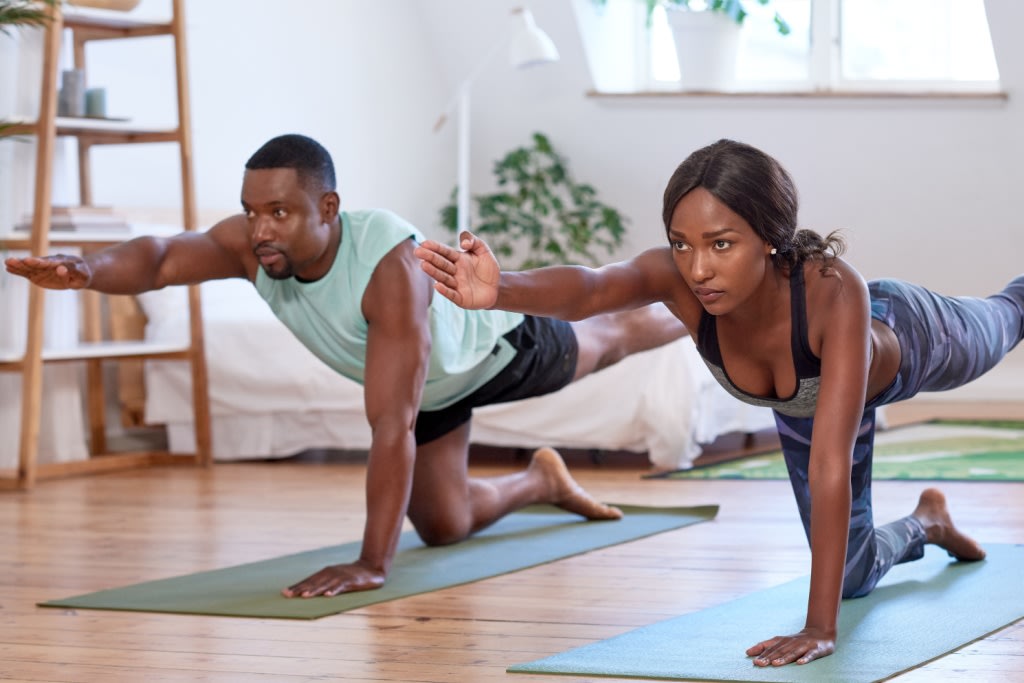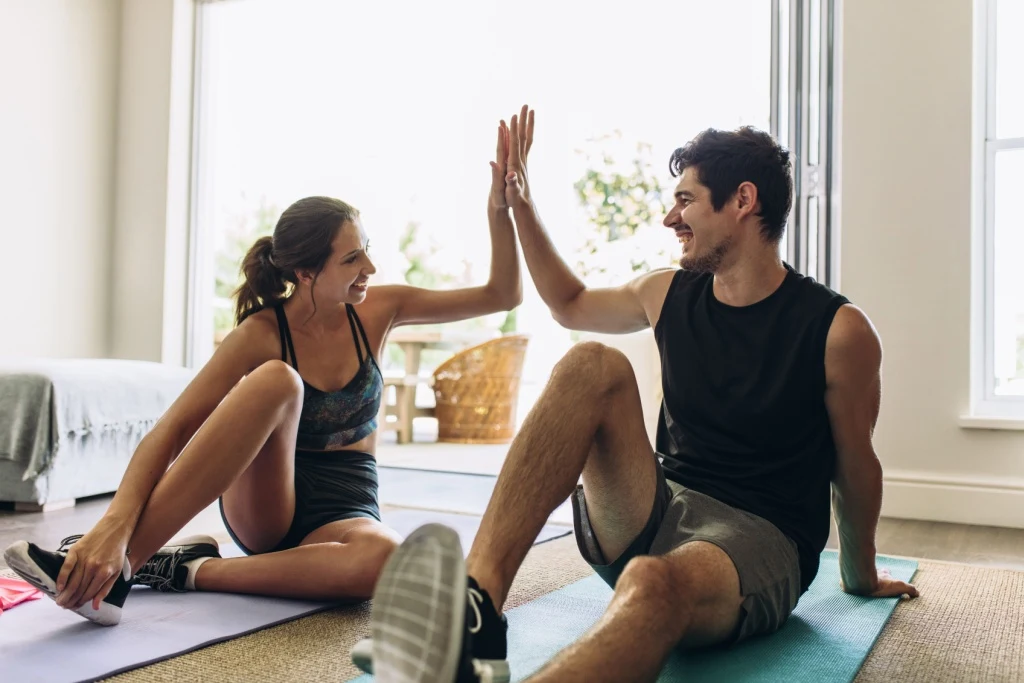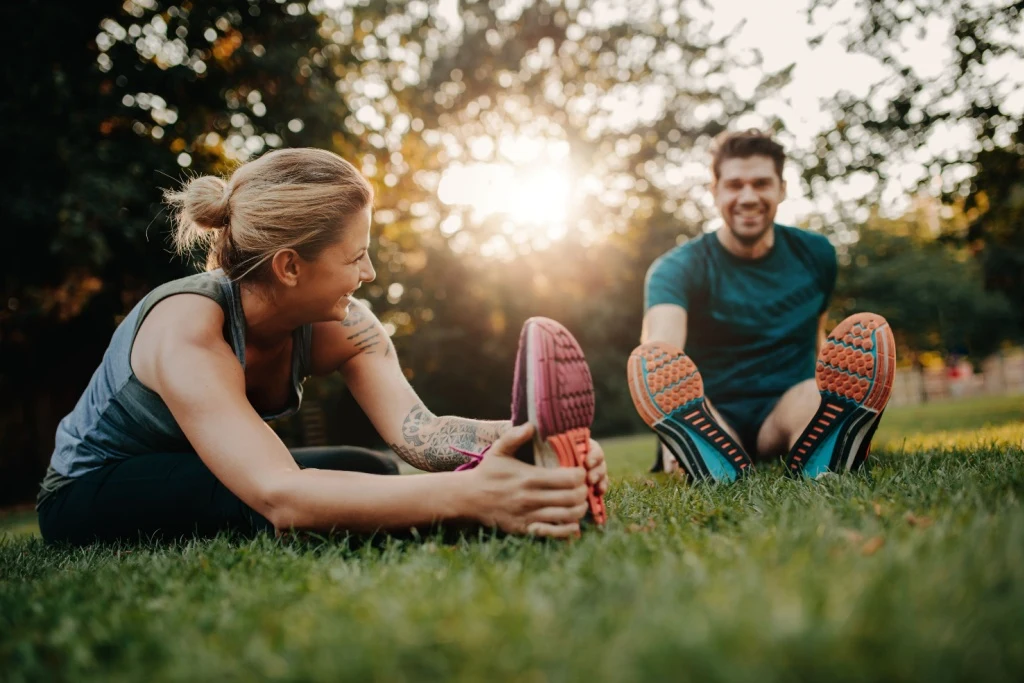Do Women Benefit From Less Exercise Than Men?
We dive into the data of a new gender exercise gap and discover what it means for your fitness routine.

April 11, 2024

Staying on the pulse of new health research is always on our radar at Sweat, especially when it comes to information that could empower or improve the lives of women in the Sweat Community. But unfortunately, we often find a significant amount of research focuses on male subjects and it often doesn’t make sense to blindly apply the same findings to women.
So when we saw a new study exploring how the benefits of exercise can differ between men and women, we got hella excited. For years, the same exercise recommendations (including those promoted by government agencies) have often been dished out for all adult populations without consideration of sex, even though there are clear differences in physiology.
A study that not only recognises these gender differences but also has a strong focus on females, recognising that a one-size-fits-all approach doesn’t work? More of that, please.
Fresh findings
The 2024 study was published in the Journal of the American College of Cardiology and aimed to evaluate whether the benefits of physical activity differ between men and women. From 1997 to 2019, 412,413 American adults (55% of whom were female), provided survey data on the physical activity they completed in their leisure time. Researchers then examined associations between measures of activity (such as duration, frequency, intensity and training style), and all-cause mortality (aka, the risk of death from any cause).
What’s interesting is that in comparison to men, women experienced greater gains in all-cause mortality risk reduction from the same dose of physical activity. While both men and women achieved a peak survival benefit at 300 minutes of weekly aerobic exercise, for women, the benefits were far greater.

Six bite-sized takeaways
From the study, here are six findings that stand out.
With the same level of regular exercise, women experienced a 24% mortality risk reduction compared to an 18% reduction for men.
Women experienced greater benefits than men for any dose of physical activity leading up to 300 minutes per week, across different session durations, training intensities and types, and frequencies.
Women only needed 2.5 hours of moderate to vigorous aerobic exercise per week to get the same “survival benefit” that men get from five hours of physical activity.
For men who completed regular strength training, compared with inactivity, mortality risk was reduced by 11%. For women, the mortality risk reduction was significantly higher at 19%.
Men experienced the greatest mortality benefits from engaging in three strength training sessions per week with their mortality risk being reduced by 14%. Women experienced equivalent or greater benefits by engaging in just one strength training session per week.
When women did engage in three weekly strength training sessions, the reduction in all-cause mortality was double that of the men.
Why is there such a difference?
There are several potential reasons behind these findings, most of which point to differences in biology and physiology between males and females.
For example, the researchers note that males tend to have greater exercise capacity than females, as on average males have proportionately larger hearts, airways and muscle fibres. Females also tend to experience greater relative improvements in strength when they start strength training compared to men, even though they generally have lower strength overall. The improvement is actually a stronger predictor of mortality than muscle mass.

Less really is more
For women, this research is important, encouraging and exciting. We know how hard it can be to find the time to fit in one workout a week, let alone three or four, and this study shows that you should feel empowered to do whatever amount of exercise you have time for. The gender exercise gap is real and even small amounts of movement (think exercise snacks or Express workouts in the Sweat app!) can make a huge difference, especially for women. If you don’t have much time, don’t fall into the trap of thinking a little bit of movement isn’t worth doing. It is!
If you’re short on time, there are also several programs in the Sweat app that have been designed with your busy schedule in mind, such as The Daily 10 with Britany Williams and PWR Express with Kelsey Wells.
To keep in mind
Although we love the findings this study sheds light on and how it paves the way for more research that recognises the differences between male and female bodies and the health implications of that, this study does have its limitations.
Because it was an observational study, it’s difficult to draw any conclusions about cause-and-effect relationships. Given all the data was from self-reported surveys, errors in memory or reporting are possible which can influence the results, and other lifestyle factors could be at play.
Small doses have big power
More health benefits for less time and effort? We’ll take that win any day. Regardless of how much time you’ve got to dedicate to your fitness routine, every little bit counts, and for women, even a little bit can count a lot.

Erin is a writer and editor at Sweat with years of experience in women's publishing, media and tech. She's passionate about the power of movement, and you can often find her on a yoga mat, a hike, a dance floor, in the ocean or the gym.
* Disclaimer: This blog post is not intended to replace the advice of a medical professional. The above information should not be used to diagnose, treat, or prevent any disease or medical condition. Please consult your doctor before making any changes to your diet, sleep methods, daily activity, or fitness routine. Sweat assumes no responsibility for any personal injury or damage sustained by any recommendations, opinions, or advice given in this article.
Wellbeing